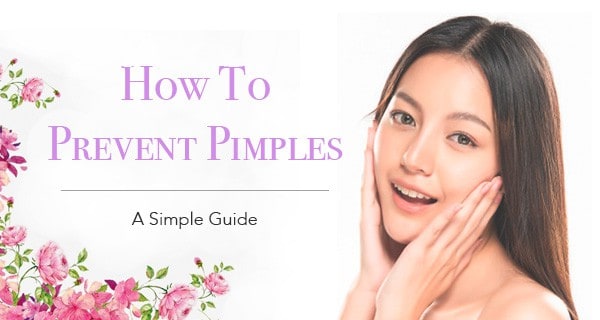How to Prevent Pimples: A Simple Guide Leave a comment
After a tiring day of work, you woke up from 4-5 hours of sleep.
When you are about to brush your teeth, the reflection from your mirror annoyed you immediately.
Few red, swollen pimples had formed on your face or nose.
The pain and the looks of them always tempting you just to burst it, or apply thick makeup to conceal it.
I believe this is a widespread scene where many people(even myself) have gone through. Many people have this misconception that by keep washing your faces can prevent pimples.
In the end, the pimples outbreak still occur, and you will need to spend some amount to visit a doctor or dermatologist. There are many methods to reduce their severity and keep them in check. So in this guide, we will provide a simple walkthrough on how to prevent pimples
What causes pimples?
Before you read the pointers on how to prevent pimples, you must understand what they are and what caused them in the first place.
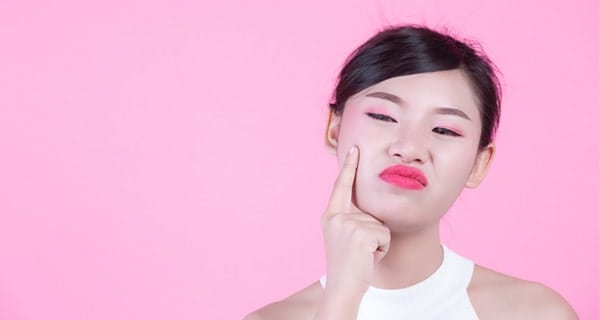
Pimples, also called acne, occur when your skin’s oil glands are overactive, and the pore becomes inflamed. Some types of skin bacteria may make pimples worse.
Hormone production changes during puberty, and this often causes the sebaceous glands, which are located at the base of hair follicles, to become overactive. As a result, pimples are most likely to occur during the teenage years and women’s menstruation.
Most often, they affect the face, back, chest, and shoulders. There are many sebaceous glands in these areas of skin.
Different Types of Pimples

There are several different types of pimples, and they have different signs and symptoms:
Whiteheads: Also known as a closed comedo, these are small pimples that remain under the skin. They appear as a small, flesh-colored papule.
Blackheads: Also known as an open comedo, these are visible on the surface of the skin. They are black or dark brown, due to the oxidation of melanin, the skin’s pigment.
Papules: These are small, rounded bumps that rise from the skin. They are often pink.
Pustules: These are pimples full of pus. They are visible on the surface of the skin. The base is red, and the discharge is on the top.
Causes
Pimples happen when pores become clogged with sebum and dead skin. Sometimes this leads to infection and inflammation. Why they affect some people more than others is mostly unknown.
Bacterial infection
Where secretion and dead skin cells accumulate and block a pore, this encourages the expansion of undesirable microorganisms, together with Propionibacterium acnes (P. acnes), a slow-growing microorganism coupled to pimples problem.
Propionibacterium acnes exists harmlessly on our skin. However, once the conditions are right, it will reproduce faster and become a problem. The slow-growing microorganism feeds off the sebum and produces a substance that causes an immune reaction, which results in skin inflammation and spots.
Although pimples are associated with a bacterial infection, they’re not contagious. So no one can spread the virus to another person.
Yeast infections
Acne-type breakouts are often linked to yeast infections.
Pityrosporum, additionally referred to as Malassezia or folliculitis, happens once an hemipityrosporum yeast enters the hair follicles and multiplies, triggering a restless eruption of little, itchy, rounded pimples, that resembles acne. Most of the time, it happens on the upper chest, shoulders, and upper back. It may also affect the face too.
Most people have this yeast on their skin, but if an excessive amount of yeast develops, it will then cause a problem. Pimples outbreak often happens to both men and ladies during their young to middle-age.
Humid, perspiring environments, garments fabricated from synthetic fibers, and also the use of oily skin products will only make it worse. Therefore, It is recommended that you use the correct skincare products that suit your skin.
Dietary factors
The diet’s factors in pimples outbreak are still unclear.
However, since a healthy and balanced diet is understood to get good health, some dietary factors might have an effect on the probability of obtaining acne or pimples.
High glycemic foods and beverages such as chips, baked goods made with white flour, and soft drinks spike blood sugar levels and are often less nutritious than low glycemic foods.
It has usually mentioned that sugar and chocolate trigger pimples; however, there are no concrete research findings to support this.

Tips on how to prevent pimples
Now you have a better understanding of what causes pimple.
We will provide you a simple guide on how we can prevent pimples outbreak.
-
Wash your face properly
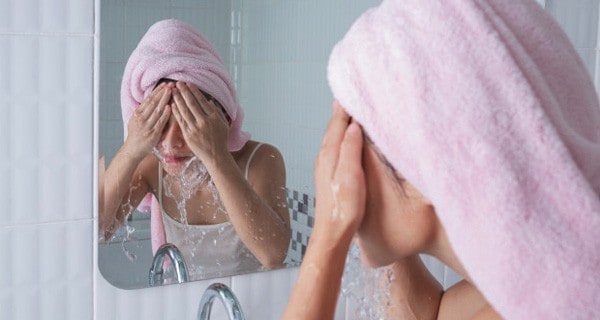
It is vital to remove excess oil, dirt, and sweat daily by washing your face daily. However, it is not advisable to wash your face more than twice daily as it will make your skin dry, thus a higher chance of getting pimples. It is recommended that you wash your face early in the morning when you wake up and before you go to sleep at night.
Wash your face with an alcohol-free cleanser. Strong alcoholic cleanser may cause your skin to be dry.
To wash your face the correct way:
- Wet your face with warm, not hot, water. ( You can tell by whether the water burn your skin)
- Apply a mild cleanser in a gentle, circular motion using your fingers. Not advisable to use a tower
- Rinse your face thoroughly and pat dry. Do not dry your face by rubbing.
-
Know what is your skin type
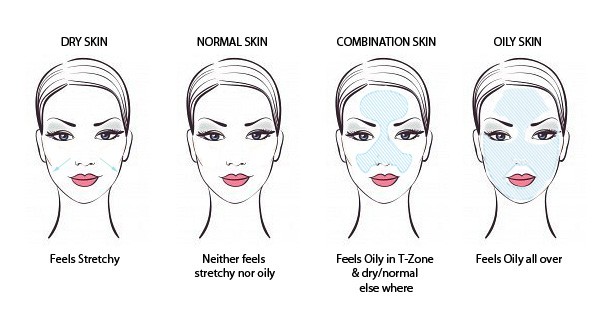
Anyone can get pimples regardless of your skin type.
Among all, Oily skin type is the most pimple-prone, where your skin’s sebaceous glands produced too much oily sebum.
Another type of skin that is pimple-prone is the combination skin type. It means that you have both dry and oily areas. The oily areas tend to be your forehead, nose, and chin, also called your T-zone.
Knowing your skin type will help you choose the right skin care products for your skin.
For example, if your skin is oily, choose noncomedogenic products that are formulated not to block pores.
-
Moisturize skin
Moisturizers help to keep your skin stay hydrated. But most of the moisturizers in the market contain oil, synthetic fragrance, or other ingredients that may irritate skin and cause pimples.
To help prevent pimples, use fragrance-free, noncomedogenic moisturizers after you wash your face or when your skin feels dry.
-
Use over-the-counter acne treatments
Over-the-counter (OTC) acne treatments may help zap pimples fast or prevent them in the first place. Most contain either benzoyl peroxide, salicylic acid, or sulfur.
Use an OTC treatment to spot-treat pimples. Or use it as a maintenance regimen to control outbreaks.
-
Stay hydrated

Your body will signal your skin’s oil glands to produce more oil if there is dehydration. It will also make your skin dull.
Drink at least eight 8-ounce glasses of water every day to keep your body well-hydrated. Drink more water after exercise, or you have spent time in a hot, humid environment.
-
Limit makeup
It’s tempting to use powder to cover up pimples. However, doing so may clog pores and trigger outbreaks.
Go natural whenever you can. However, if you have to wear makeup due to some situation, avoid greasy, heavy foundation, and use products that are noncomedogenic, sheer, and fragrance-free.
Greasy or oily products such as shampoos, body washes, shaving creams, and hair styling products may cause pimples too. Choose oil-free, noncomedogenic options to prevent pimple outbreak.
-
Don’t touch your face at all mean!
Wherever you go, whatever you do, your hands will encounter bacteria regularly throughout the day. Pore-clogging impurities may get transferred to your skin every time you touch your face.
So before you touch your face, wash your hands and finger thoroughly to remove all bacteria.
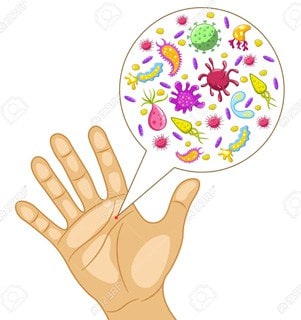
-
Limit sun exposure
Catching some rays may help to dry out pimples in the short term. But frequent sun exposure dehydrates the skin, therefore causes the skin to produce more oil and block pores.
It’s essential to wear sunscreen to help prevent pimples. For both sun and pimple protection, wear a noncomedogenic, oil-free sunscreen.
-
Don’t burst your pimples
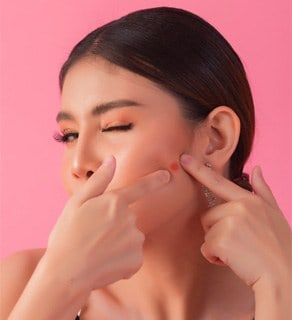
It may be tempting to burst your big red pimple at the side of your face, and sometimes on the tip of your nose. But squeezing your pimples will cause bleeding, severe scarring, or infection if you do it the wrong way. It will increase inflammation and clog surrounding pores, making your pimple problem worse.
Consult a clinic and let the professional dermatologist do it for you instead.
-
Use antibiotics
Antibiotics help reduce inflammation and bacteria on the skin, and doctors or dermatologists prescribe them. They may be applied topically to your skin or taken by mouth. It is usually the last resort for people whose acne is severe or doesn’t respond to other treatments.
Long-term antibiotic use increases your risk of antibiotic resistance. If your healthcare professional recommends antibiotic therapy for pimples, make sure you talk to them about the risks and side effects.
-
Avoid certain foods
According to a 2010 review, eating a high glycemic diet may cause acne.
High glycemic foods and beverages such as chips, baked goods made with white flour, and soft drinks spike blood sugar levels and are often less nutritious than low glycemic foods.
The study also found eating dairy may trigger pimples outbreak too.
-
Reduce stress
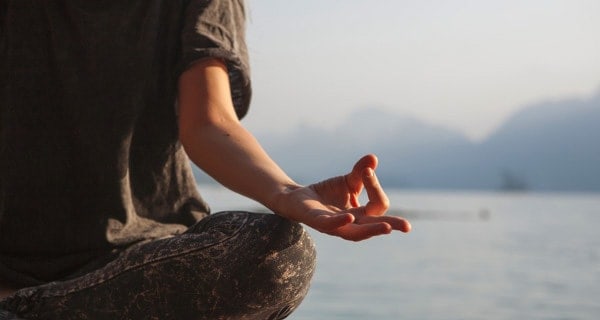
Stress may not cause pimples directly, but it may make them worse. Research has shown that when you’re stressed, your body produces more oil-stimulating hormones that cause t to develop.
You can relieve stress by exercising, going for a massage, attending Yoga sessions, etc. Stay positive and relaxed is essential to keep your mind away from stress.
The Conclusion
It is very reasonable for people to have a pimple outbreak. You need to be careful and have precise planning on how you are tackling the issue.
Whatever the pimple prevention plan you choose, patience and consistency are critical. Most treatments take several weeks to produce results, so do not worry if you cannot see the result fast.
It may be annoying, but if you handle it correctly, you can prevent your pimples outbreak for good.
Getting the correct skin care products for your skin types is crucial to prevent pimples too. You can get the skin care products at a great deal here.
You may consider laser treatment for acne scars if you like them to be removed permanently.
You might be interested in how you can build up your skin care routine and guides on how to slow down your aging process.
Reference :
What causes pimples?
https://www.medicalnewstoday.com/articles/71702.php
How to Prevent Pimples
https://www.healthline.com/health/how-to-prevent-pimples
[/expander_maker]

